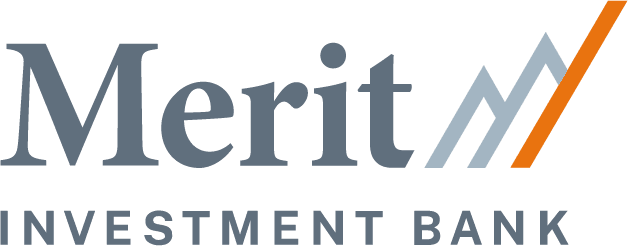Defending Your Equity Value – Key Steps to Realizing Maximum Value in Your Business
In 1960, as he concluded a legendary career in baseball, Ted Williams stood in front of his locker at Fenway Park while mired in one of the few slumps of his career. He told a pack of reporters, “Baseball is the only field of endeavor where a man can succeed three times out of ten and be considered a good performer.”
The Splendid Splinter, who had an eye-popping career average of .344, was right, or about 34 hits per 100 at-bats.
But what if he succeeded only three out of 100 times. I imagine he’d be searching Fenway Park for a great coach to get him back on track.
You see, only 3% of business owners are highly satisfied each year going through selling their business.
That is alarming. Only three out of 100!
Why only 3%? We know that only about 20-25% of businesses that start the transaction process end up with a sale[1]. For the small percent that does make it, only 12% of them are highly satisfied with the transaction result, and only around half are satisfied at all[2]. Put those two numbers together, and you get only about 3% of owners that start the process and end up highly satisfied. The time, energy, and sacrifice it takes to build a private business and get it ready for sale is tremendous, and for so few to be highly satisfied with the result is troubling.
Why are so few owners highly satisfied? While every transaction is different, it primarily comes down to a lack of presale planning, both at the corporate and family wealth planning levels. We will address each of these areas and why business owners can get value from a great coach to help you view your business from a different perspective, just like a great hitting instructor can take apart your swing, so together, we can change the result.
[1] Source: BizBuySell Survey
[2] Source: AES Nation, LLC. N = 170 Business Owners

Corporate Presale Planning
It begins by having Defendable Equity Value in your business, and that requires a high level of confidence in the following critical areas within your company:
- Past and Future Revenues. You must be able to demonstrate deep knowledge of the last five years of your financials. If there is a year where growth was significantly higher or lower, what was the cause? Are there one-time expenses or revenue that occurred that need to be explained? Similarly, in the future, you must show how the company will continue to grow revenues and why you are confident in your forecasts.
- A Trading Multiple You Can Demand. You must understand how an outside buyer will view your company from a risk standpoint. Do you have a baseline value to start from, and have you eliminated any causes for concerns so that you can demand a higher value within your industry ranges?
- Your Ability to Successfully Realize Equity Value. There is no real value in your business if you cannot monetize that equity through a transaction that will provide for your financial goals. This requires effective presale planning at both the company and your wealth.
Creating a company with Defendable Equity Value is mostly about risk mitigation, but for different reasons. It’s all about shifting the view of risk in the company today to the company’s future look.
Have you developed a business that can back up a compelling story about delivering predictable profits and cash flow into the future? This story would need a great narrative, including your strategic plan, the success you’ve had in attracting scores of adoring customers, the use of financial reports to make the best decisions, research on your industry showing the barriers to entry keeping you on top, and a company without operational risk.
In addition to a compelling story tied to your strategic plan, does your management team have the talent and experience to drive the growth of the business, especially if you are not around? In particular, if the potential buyer of your business is a Private Equity Group and even a Strategic Buyer in many cases, it will be important that the existing management team can execute on the vision and growth that the buyer expects.
To build confidence that you have created a business with Defendable Equity Value and addressing the three critical areas described above, you must address the Key Value Drivers of Growth and Equity Value:
- Company Overview: Business Profile – Have you documented, and can you tell a compelling story of your company’s past and future?
- Financial: Audit – Are you able to show the quality of your earnings to a potential buyer?
- Legal – Do you have contractually committed revenue in the years ahead? Are your critical employees locked in and incentivized to stay? Have you eliminated any legal issue that may scare a buyer away?
- Growth – Can you document that you are driving growth faster than the competition and the market?
- Market Share – Are you able to show that you are the ‘big dog’ in your market and niche?
- Customer Diversification – Have you been able to diversify your customer base? Do you have strong customer retention to minimize the risk of future revenue to the business?
- Barriers to Entry – Do you have a defensible market where competition is blocked using financial, legal, and other means?
- Brand – Can you deliver proof that the brand helps drive sales and marketing success, high margin, recurring revenues, and has stand-alone value?
You may not be able to answer a resounding ‘yes’ to all of these as you read this. You may not even feel like you are knocking it out of the park in every one of these areas to achieve a value in the sale of your business that will help you reach your goals. However, knowing what buyers will be looking for will help you prepare to address these potential landmines in advance. Ideally, with enough time before the sale, you can put a plan in place to systematically address these areas to put your company in the best position possible so that you are prepared to defend the value you have created.
Personal Wealth and Tax Planning
The other significant factors in your control are personal wealth & tax planning that match business planning.
Many owners complete a transaction without ever fully formulating their personal goals for the transition. They did not know what they needed from the sale to position themselves to live the life of significance they wanted.
They may have been offered a price that seemed appropriate but did not look at the tax implications of the sale and what the after-tax proceeds would be. They have not updated their estate planning documents and asset protection plan to ensure that the windfall they receive will provide for their needs, the needs of their family, or charitable organizations in the most effective way.
These strategies require time to research, develop, and are put together years in advance of a sale and then refined regularly to reflect the changes in your goals for the business and your personal wealth. Because at the end of the day, the amount you keep from selling your company is more important than the top-line price of your business.
Even if all of these factors are addressed, realizing your Defendable Equity Value can be out of your control. The economic cycle plays a critical role, and timing does matter. Are your company and your industry in particular in a growth cycle? Is the economy as a whole providing for a frothy seller’s market? Getting your timing in sync with the market cycle is critical for maximum value. In order t to take more control of the timing back, all areas above must be addressed in advance.
But as a great coach told me once, it’s all about controlling what you can control.
Many steps go into building a successful private business and ultimately realizing the value through an exit.
At Konvergent Wealth Partners, we are a team of coaches here to help. We have developed a process that streamlines these steps to allow you to defend your wealth more effectively.
Over the last ten years, from working with my top business owner clients and partnering with some of the best partners in the growth planning industry, we have developed this process to analyze your entire business. From there, we help map out a plan for the business to create the value needed to achieve your goals. And finally, we work with you on the presale planning so that you can be one of the 3% that is highly satisfied with your transition to your amazing life of significance.
Whenever you are ready to step to the plate and focus on building value in your business, please email us at homer@konvergentwealth.com or give us a call at 253-236-7000.
And one last thing on Ted Williams. Thanks to a great coaching staff, he emerged from that slump, and in his final at-bat, he hit a home run at Fenway Park.
We’re here to make sure you homer with your final swing as well.
Homer Smith is a Private Wealth Advisor with Konvergent Wealth Partners and is a separate entity from Merit Investment Bank & Company.
Investment advice is offered through Integrated Financial Partners, a registered investment advisor. Integrated Financial Partners provides investment advisory services through several doing-business-as names. The information in this material is for general information only and is not intended to provide specific advice or recommendations for any individual. Integrated Financial Partners does not provide legal/tax/mortgage advice or services. Please consult your legal/tax advisor regarding your specific situation.

0 Comments